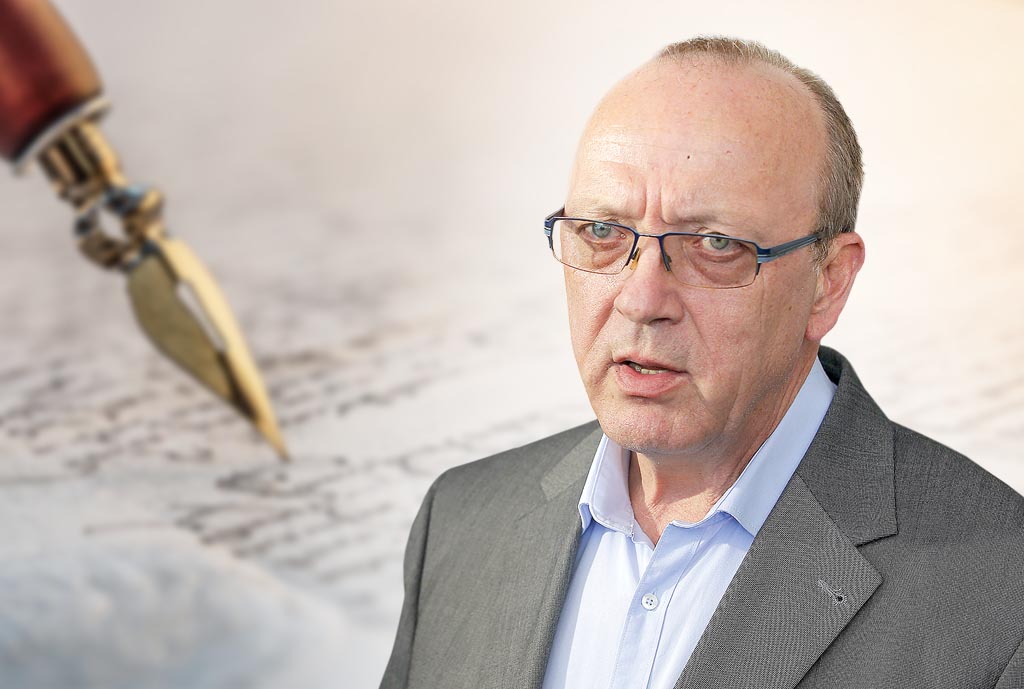By: Dr Vinko Gorenak
Almost never in my professional police career do I recall a perpetrator of a criminal act filing a self-accusation. It would indeed be unusual for someone to show up at the prosecutor’s office or the police station and confess to robbing a bank, breaking into a jewellery store, committing a bold theft, or something similar.
But in Golob’s coalition, this seems possible in practice as well. I have already written about the achievements of Aleš Rezar, a Member of Parliament from the Gibanje Svoboda party and head of the parliamentary inquiry commission investigating allegations that his boss, Prime Minister Robert Golob, influenced police operations. Golob allegedly ordered the Slovenian Intelligence and Security Agency (SOVA) to postpone the arrest of Russian spies in 2023. I call this commission the “Commission for the Protection of Golob’s Image and Work” – and I have plenty of reasons for this. It is absurd that Rezar is investigating alleged misconduct by his own boss. It is like a company security guard investigating corruption committed by the company’s CEO. It is obvious that the guard would never uncover any corruption involving their boss. The same applies to Rezar – why would he find any wrongdoing by his former, current, and future boss, Golob? Of course, he has no interest in doing so. That is why Rezar wrote a report for the inquiry commission – excuse me, the “Commission for the Protection of Golob’s Image and Work” – concluding that Golob did not influence the timing of the Russian spies’ arrests in Slovenia.
However, during one of the recent sessions of the National Assembly, where MPs discussed the report of Rezar’s commission – excuse me, the “Commission for the Protection of Golob’s Image and Work” – I reflected on the common saying that MPs in the National Assembly are often “beating a dead horse”, meaning they engage in something pointless. In the case of reviewing the aforementioned report by Rezar’s commission, this statement indeed holds true.
The first reason is that Rezar stated in his report that Golob did not influence the arrest date. This conclusion has no factual basis, nor is there any evidence to support it – especially since Rezar did not even invite Golob for questioning, let alone conduct a serious interrogation.
The second reason is that, at Rezar’s suggestion, the National Assembly decided to file criminal charges against Boštjan Lindav, former police chief, and Tatjana Bobnar, former Minister of the Interior, for allegedly giving false testimony about Golob’s influence on the arrest date. Such a decision by the National Assembly is entirely unnecessary since the law is clear: anyone who believes that a crime – such as giving false testimony – has been committed can and must report it immediately to the prosecution or police. There is no need for a National Assembly decision, making this case yet another example of “beating a dead horse.”
Few criminals would voluntarily report themselves to the police or prosecutors, admitting they committed a crime. Yet Rezar did exactly that. Some, including National Assembly President Urška Klakočar Zupančič, pointed out that Rezar’s report, excuse me – the “Commission for the Protection of Golob’s Image and Work” report – contained classified information. Disclosing classified information is a criminal offense, and that is precisely what Rezar did. Rezar claimed that the report did contain some classified information but argued that it was no longer classified because the media had already reported on it. However, this is simply not true. The law is clear: any information marked as classified remains classified until the person who designated it as such removes the classification. Media coverage of classified information does not affect its classified status in any way.
So, it is no surprise that those responsible for prosecuting crimes – such as the disclosure of classified information – have apparently already acted. It would be appropriate for Rezar to be held accountable for the criminal offense of disclosing classified information, which he evidently committed, even though he may not have realised that his statement effectively amounted to filing a criminal charge against himself.

